How to be a revenue leader of the 21st century
October 20 2014
What century are we in? The 20th or the 21st? No longer can we in the industry use antiquated approaches and attitudes to manage demand.
| By Bonnie Buckhiester HNN columnist bonnie@buckhiester.comWhat exactly is the role of the revenue manager today? Tactician? Strategist? Mediator? Leader? Innovator? Software Expert? The truth is that, ideally, the revenue manager has to be all of the above. He or she has to be an Excel guru and be able to master complex business intelligence tools. Revenue managers have to be demand managers and demand creators. They have to stand up to the juggernaut of marketing & sales (sell the dream, service the nightmare) and speak their mind to multiple stakeholders at all levels—hotel, corporate, third party, asset, and ownership. Yes, the role of the revenue manager is ever evolving. It is not enough today to be a good tactician. It’s not even enough to be a good traditional revenue manager. Today’s complex markets and rapidly changing consumer-buying behavior challenge the revenue manager to wear many hats. At the same time, if revenue managers are to make it to the next iteration of revenue management expertise, they have to “embrace work scope creep,” according to Sloan Dean of Ashford Hospitality Trust. What does he mean? Well, understanding Google analytics, pay-per-click campaigns and how to optimize links and landing pages are all part of the job. The revenue manager as well must be an expert in “telling their story.” Data expressed in spreadsheets isn’t good enough. Data visualization through the use of charts, graphs, PowerPoint and other tools is essential. Most people can’t stand staring at spreadsheets. Just because revenue managers see a great spreadsheet as their best friend doesn’t mean other members of the revenue team revel in Excel. Today the successful revenue manager must be able not only to multitask—that’s a given—they have to find a way to cut through the minutia, to make time for the strategic vision that is required in complex markets. But is this really happening in hotels today? A revenue manager or director of revenue at the property level is still trying to do all the things that made up the job five to seven years ago, as well as manage every aspect of multifarious markets as they present themselves. And senior management wonders why a top-notch revenue manager is asking for an assistant to do the grunt work. One has to wonder if the decision makers have looked at a hotel distribution chart recently. Cindy Estis Green, in her presentation at the Hotel Sales & Marketing Association International’s Revenue Optimization Conference in June, presented a detailed graphic of hotel distribution that illustrated nine different categories of distribution: social media, hotel & chain sites, online travel agencies, other consumer sites, retail & corporate sites, switch & channel management, global distribution systems, central reservation systems and group referral & booking sites. No wonder the revenue manager is busy! Imagine trying to optimize rate, length of stay and room types for all market segments in all channels. It’s mindboggling. Tip of the iceberg But this is just the tip of the iceberg. Unfortunately, the distribution piece of the revenue management puzzle garners too much attention. What about the other pieces? The revenue manager must also make certain there is optimal product alignment—for example, matching as best possible the room product to the demand in the marketplace. Looking at revenue per available room by room type is a good data set to detect underperforming room categories. And what about the competitive benchmarking piece? Interpreting every single tab on a multifaceted STR report is a job in itself. (STR is the parent company of Hotel News Now.) But competitive benchmarking doesn’t stop there. The revenue manager also must review and interpret reputation management reports (which didn’t even exist five years ago) to determine among other things if the hotel’s value proposition is fully leveraged. There are also, of course, the usual challenges in strategic pricing and demand forecasting. Many incentive programs for revenue managers include forecast accuracy as a criteria; and this is forecast accuracy by day, by segment—not just by month. As for business mix management, many revenue managers have abandoned the traditional “transient protection” and “minimal acceptable rate” guidelines & functionality in sales/catering systems in favor of dynamic pricing and mix management. But to stay on top of business mix is an everyday job. All this, coupled with knowing the “in’s and out’s” of a multitude of software systems, some of which are not even interfaced. And we haven’t even addressed the management of acquisition costs, where the escalation of fees and commissions has outpaced revenue growth—so much so as to introduce the concept of “net RevPAR,” just to try to get a handle on what hoteliers are really taking to the bank. It’s exhausting just thinking about it At the same time, the industry is attempting to short-circuit this workload by assigning cluster revenue managers to manage several hotels at once. Or to offer remote revenue management services where the person tasked to optimize revenue has never even seen the hotel. What’s wrong with this picture? We would not run a kitchen without a chef or an accounting department without a controller. Yet, we farm out our revenue management needs, which I suppose is better than not having a revenue manager at all, but in reality falls short of addressing the complex requirements of a solid revenue management effort. So I ask: What century are we in? The 20th or the 21st? No longer can we in the industry use antiquated approaches and attitudes to manage demand. Eleven years ago there were about 50 people at HSMAI’s Revenue Optimization Conference; this year there were 550-plus. I rest my case.
Bonnie Buckhiester is the principal of Buckhiester Management, the leading Revenue Management consulting firm in North America for the hospitality industry. Founded in 1995, now with offices in Seattle, Vancouver and Washington, DC, Buckhiester Management is the creator of REVRoadMap®, a proprietary Revenue Management (RM) business process designed to enable clients to develop RM as a core competency with full integration of both strategic and tactical skills. |

